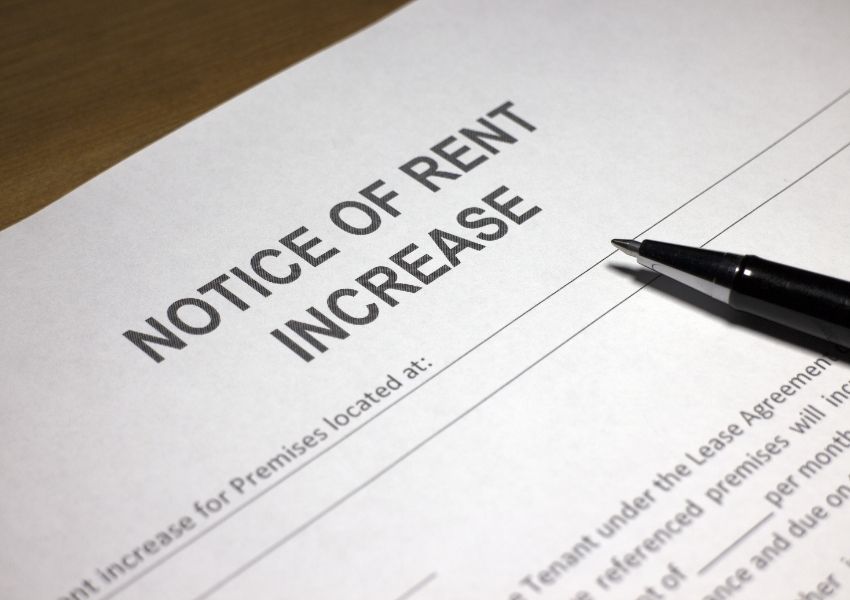Since 2020, California now, for the first time, has a statewide rent control law. Rent increments have now been capped at a maximum of 5% per year.
The Tenant Protection Act of 2019, also known as Assembly Bill 1482, is meant to ensure that landlords don’t raise rent exorbitantly. This Act was passed because of rising poverty rates, homeless populations, and housing shortages.
But what exactly does this mean to landlords in California? Here’s everything you need to know about this crucial piece of legislation.
All About the California Rent Increase Law

What Kinds of Properties Will Be Impacted?
The rent increase law will mostly apply to apartments and multi-family properties.
If you own a single-family home or condominium and aren't operating as a real estate investment trust or corporation, you'll be exempt from this law.
Duplexes will also be exempt if you occupy one of the units.
Does the Rent Control Law Apply to All Cities of California?
No! The new law will only apply to cities that don’t yet have a local rent control law.
Your property must also be at least 15 years old to be subject to the new law. The 15 years is a rolling date, so for buildings built in 2007, the law will begin covering them as from 2022, and so on.
The rules, however, won't change for buildings already covered by a local rent control law.
How Much Can a Landlord Raise Rent in California?
Raising rent in California is now a bit more complicated than it was before.
If your rental property is located in an area that doesn’t yet have a rent control law, rent increments will only be capped at 5 percent plus the local inflation rate. The total increment shouldn’t exceed 10%.
Let’s use an example:
Suppose you’re renting out your property in Torrance (which doesn't have its own local rent increase laws) for $1,600 a month.
Assuming that LA County’s inflation rate for that year is 3.3%, and you can increase the rent by 5% on top of this, then you may be able to hike the rent by a total of 8.3%.
The total would add up to $1733, an increase of $133 per month.
How Can You Calculate The Local Rate of Inflation?
Each metropolitan area has a Consumer Price Index tied to it. Between 2001 and 2018, the rate of inflation in Los Angeles County averaged 2.5%.
At the moment, the applicable Consumer Price Index is 3.3% in both LA and Orange County.

Which Areas of Los Angeles County Already Have Rent Control Laws?
The following cities already have a rent control law in place:
- Santa Monica
- Beverly Hills
- West Hollywood
- Inglewood
- Culver City
- Los Angeles (including all its unincorporated neighborhoods).
What if My City Already Has a Rent Control Law in Place?
Generally speaking, there won't be a change of rules. The new law doesn’t override existing laws. AB 1482 is only meant to cover units that don’t have any local rent control laws.
In Los Angeles County, for example, the local law only applies to properties built prior to 1978. In such a case, the new law will apply to new buildings constructed between 1978 and 2005.
So, if you have a rental property in LA that was built before 1978, any rent hikes will be capped by the provisions of the city’s law.
If the building was built after 1978 and is at least fifteen years old, then the new law will apply. You’ll need to cap the rent hike at 5%, in addition to the inflation rate.
Can you Still Evict a Tenant in a Rent-Controlled Area?
Absolutely! Rent control laws don’t in any way waive the right of a landlord to evict a tenant. However, the new law does require you to have “just cause.”
Typically, a lease ends in either of two scenarios: Either a fixed-term expires, or a tenant or landlord gives notice of the lease ending in a month-to-month agreement. In such cases, you wouldn’t need to specify a reason for ending the tenancy.

However, it’d be unlawful for you to do so in certain situations; for example, as retaliation for the tenant exercising their rights, or for discriminatory reasons.
With the new rent control law in place, California landlords now can hike rent to market levels following a vacancy. However, you must do so in strict adherence to the statewide landlord-tenant law.
It’d be unlawful, for instance, to repeatedly evict existing tenants and rent to new ones willing to pay higher rents.
According to Section 1946.2 of the Tenant Protection Act of 2019, the following are some legitimate reasons for lease termination:
- Gross violation of the terms of the lease agreement. For example, having unauthorized roommates or failing to pay rent.
- Engaging in prohibited or illegal activities like causing property damage, disturbing neighbors, or drug dealing.
- In case the landlord or their family member wishes to move into the rented premises.
- In case the landlord wishes to carry out extensive property improvements, which would be impossible to do while the tenant is there. However, you'll need to pay the tenant a relocation fee equal to one month's rent.
What Happens if You Violate the California Rent Control Law?
Tenants have a right to petition the local rent board and request their intervention if they have reasons to believe their landlord has violated the rent control laws.
If found culpable, you may be liable for damages.
Disclaimer: This information is only educational and is in no way intended to be a substitute for professional legal advice. For expert legal help, please consult a legal attorney or an experienced property management company in LA County.







